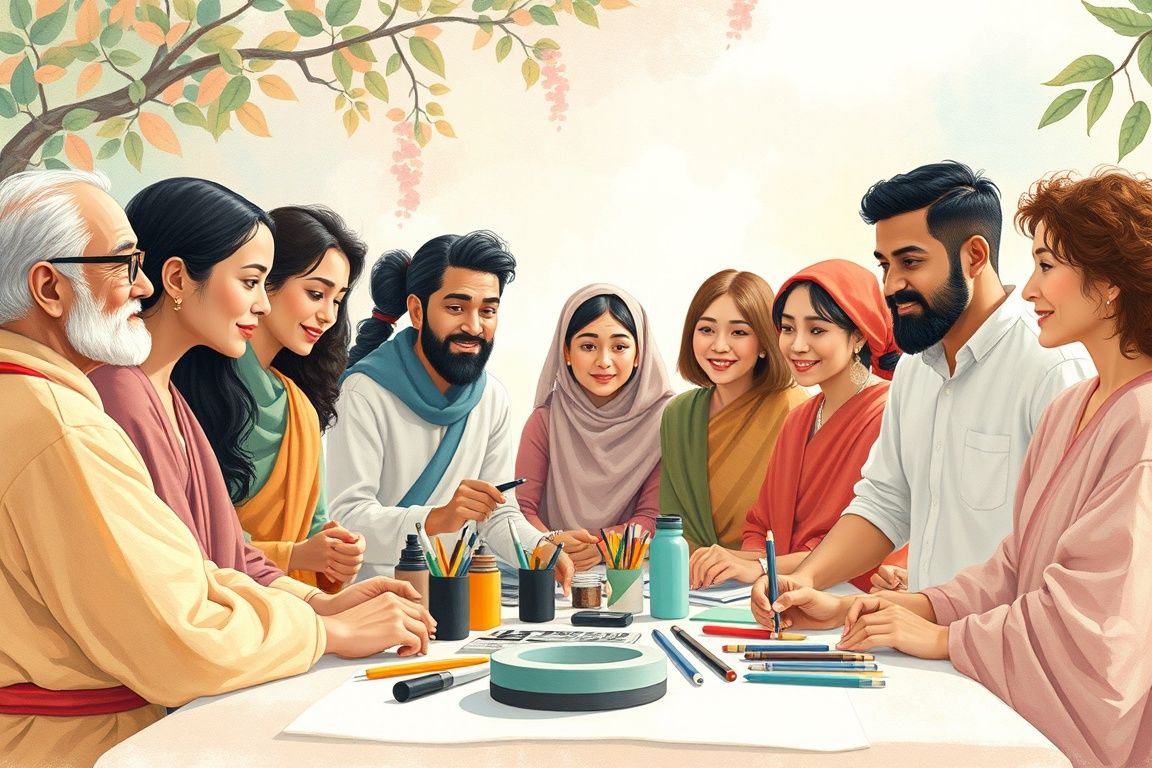Cultural Identity and Representation in Media
Why It’s Worth It
Gain a comprehensive understanding of how media shapes cultural identity, enhancing your awareness of societal impacts.
Develop critical thinking skills to analyze media representations and challenge harmful stereotypes effectively.
Equip yourself with practical analytical tools and frameworks to navigate and contribute to discussions on cultural representation.
Your Learning Roadmap
Foundations of Cultural Identity and Media Representation
This module establishes the key definitions and theoretical underpinnings of cultural identity and media representation. Students will explore what constitutes cultural identity and how media serves as both a reflector and constructor of these identities. The module covers historical evolution, basic theories, and sets the stage for deeper analysis in later modules. Learners will gain a solid grounding in the language and ideas that shape contemporary debates in the field. Understanding Cultural Identity Media Representation Overview Historical Evolution of Media Portrayals
Theoretical Frameworks and Critical Perspectives
This module presents the principal theories and critical perspectives essential for analyzing cultural representation. By engaging with works like Edward Said’s Orientalism and Stuart Hall’s theories, students will deepen their understanding of power dynamics in media narratives. The content connects academic debates with practical examples from media. Students will learn to critically assess how theoretical frameworks illuminate the construction of cultural stereotypes. Orientalism and Postcolonial Critique Cultural Studies and Media Sociological Perspectives on Identity Construction
Stereotypes and Media Narratives
In this module, students will explore the intricate relationship between media narratives and stereotype creation. The lessons delve into the mechanisms of stereotype formation and how these narratives shape public perceptions. By analyzing examples from popular media, learners gain a critical perspective on the repetition of cultural myths. The module equips students with analytical tools to identify and challenge stereotypical portrayals. Mechanisms of Stereotype Formation Narrative Structures in Media Analyzing Cultural Myths in Popular Media
Representation in Global Media
This module examines how different media platforms and cultural settings handle representation. Students compare representations in film, television, and digital media across various regions. The lessons emphasize cross-cultural perspectives and examine the impact of globalization on media narratives. Learners will gain insights into both commonalities and differences in representation worldwide. Representation in Film Television and Digital Media Cross-Cultural Comparisons
Case Studies: Cultural Representation in Contemporary Media
This module uses detailed case studies to bring theory into real-world context. Students will analyze different media sectors including film, documentaries, and advertising. By comparing case studies, learners develop a critical eye for both progressive and problematic media portrayals. The lessons offer practical analysis and reflective discussions on current media trends shaping cultural identity. Hollywood vs. Non-Western Films Documentaries and Authenticity Advertising and Cultural Appropriation
Future Directions and Media's Role in Social Change
This final module looks at the evolving landscape of media representation and its potential role in fostering social progress. Students will explore how media can function as a tool for empowerment and reform. The module highlights novel narrative techniques and policy approaches that may redefine cultural identity in media. Learners will also consider ethical responsibilities and the impact of future technologies on representation, preparing them for proactive engagement in media discourse. Media as a Tool for Empowerment Shaping New Cultural Narratives Ethical Considerations and Policy Directions
What Users Are Saying
All You Need to Know
Enroll Now!
Real-time chat assistance for personalized learning.
Case studies to connect theory with practice.
Engaging lesson formats with interactive discussions.
Comparative analysis of global media representations.
Tools for identifying and critiquing stereotypes.
Flexibility to learn at your own pace, anytime, anywhere.

